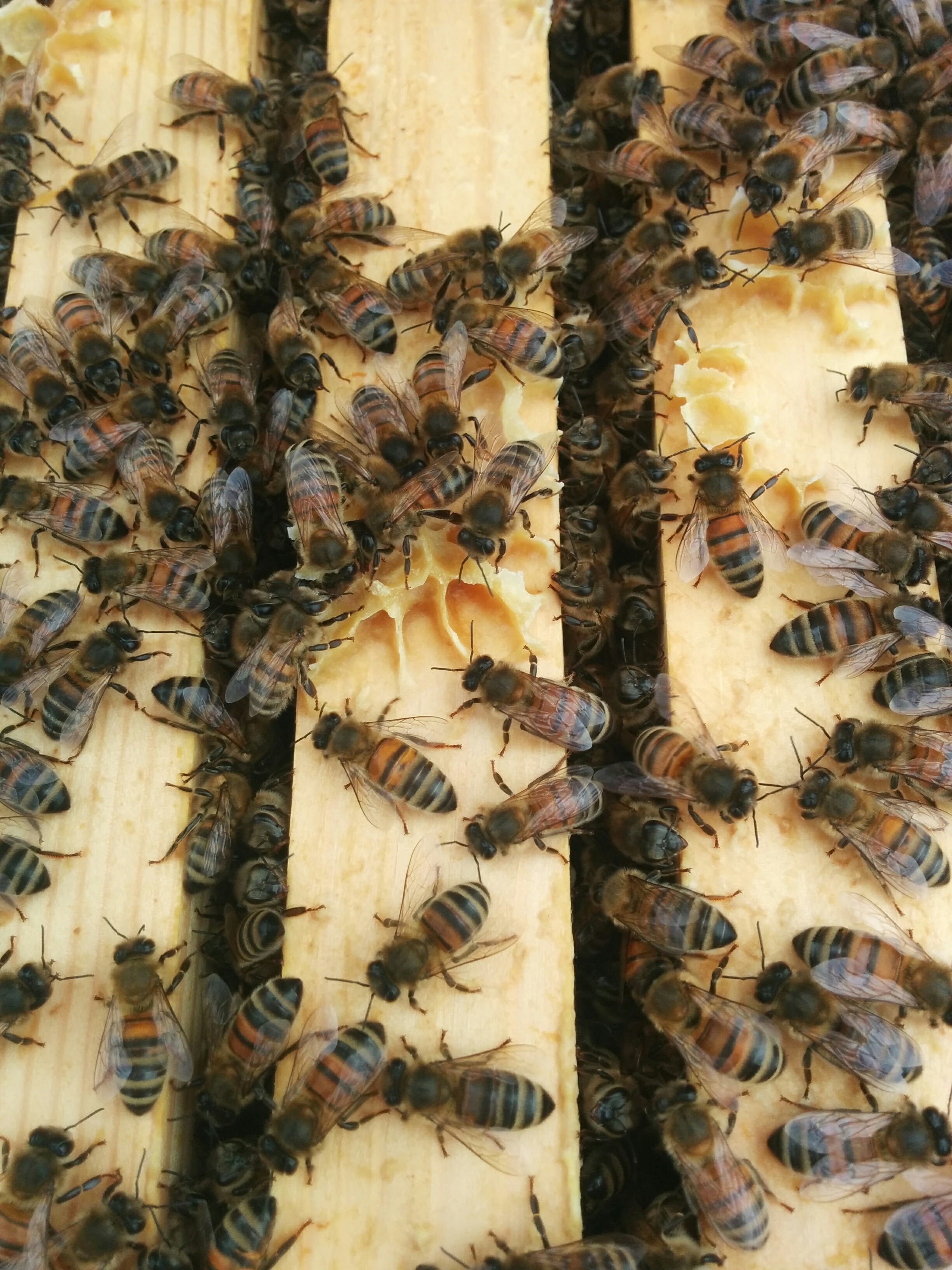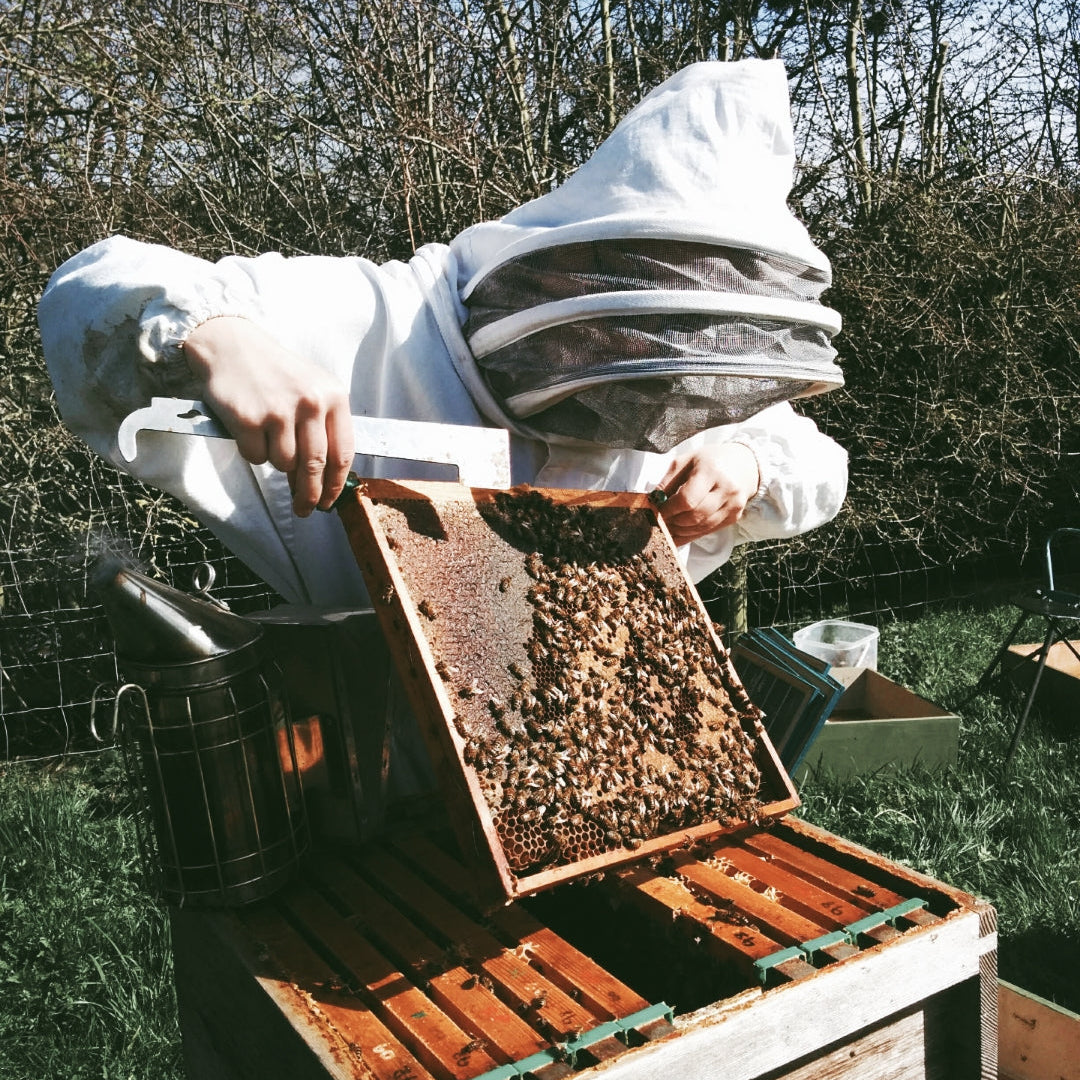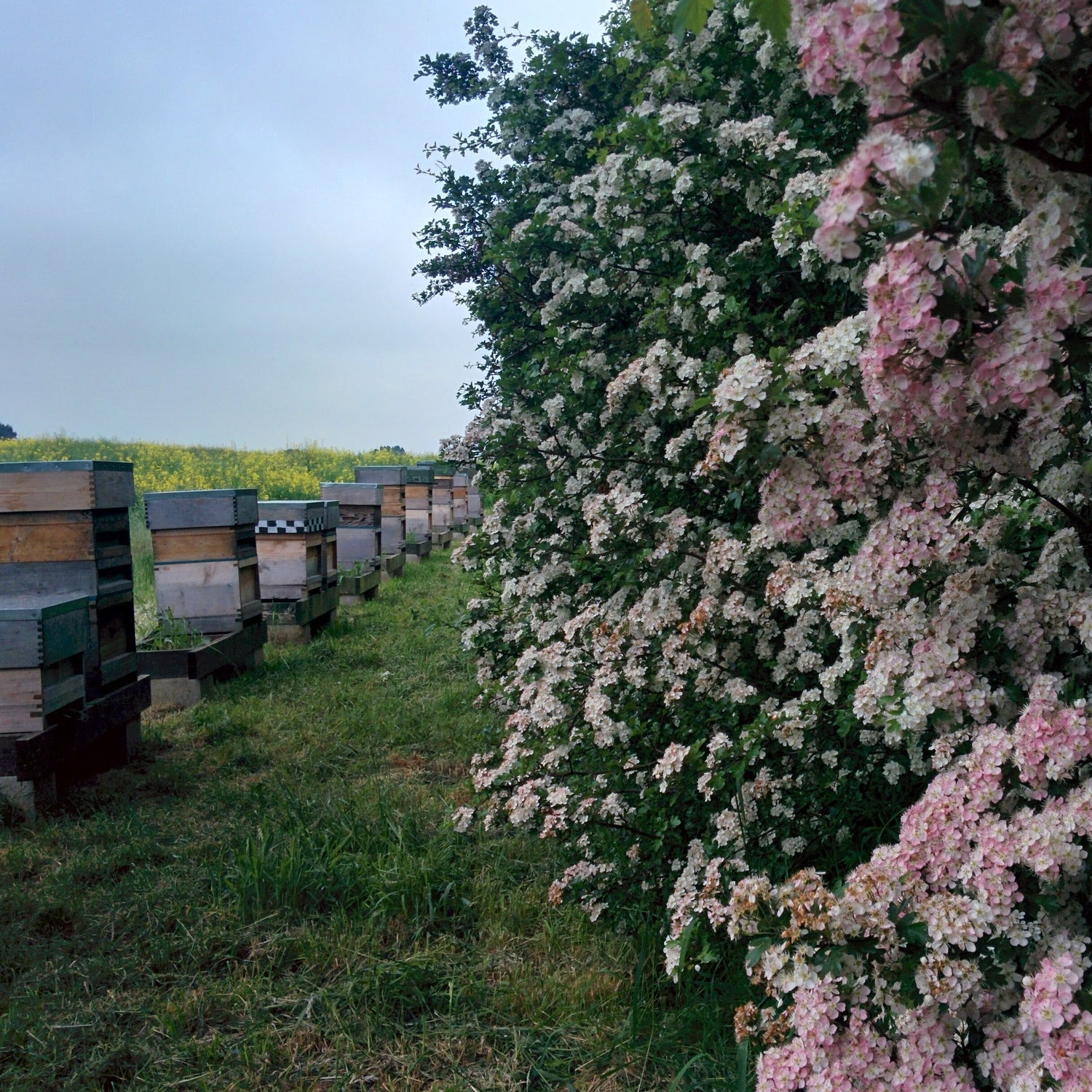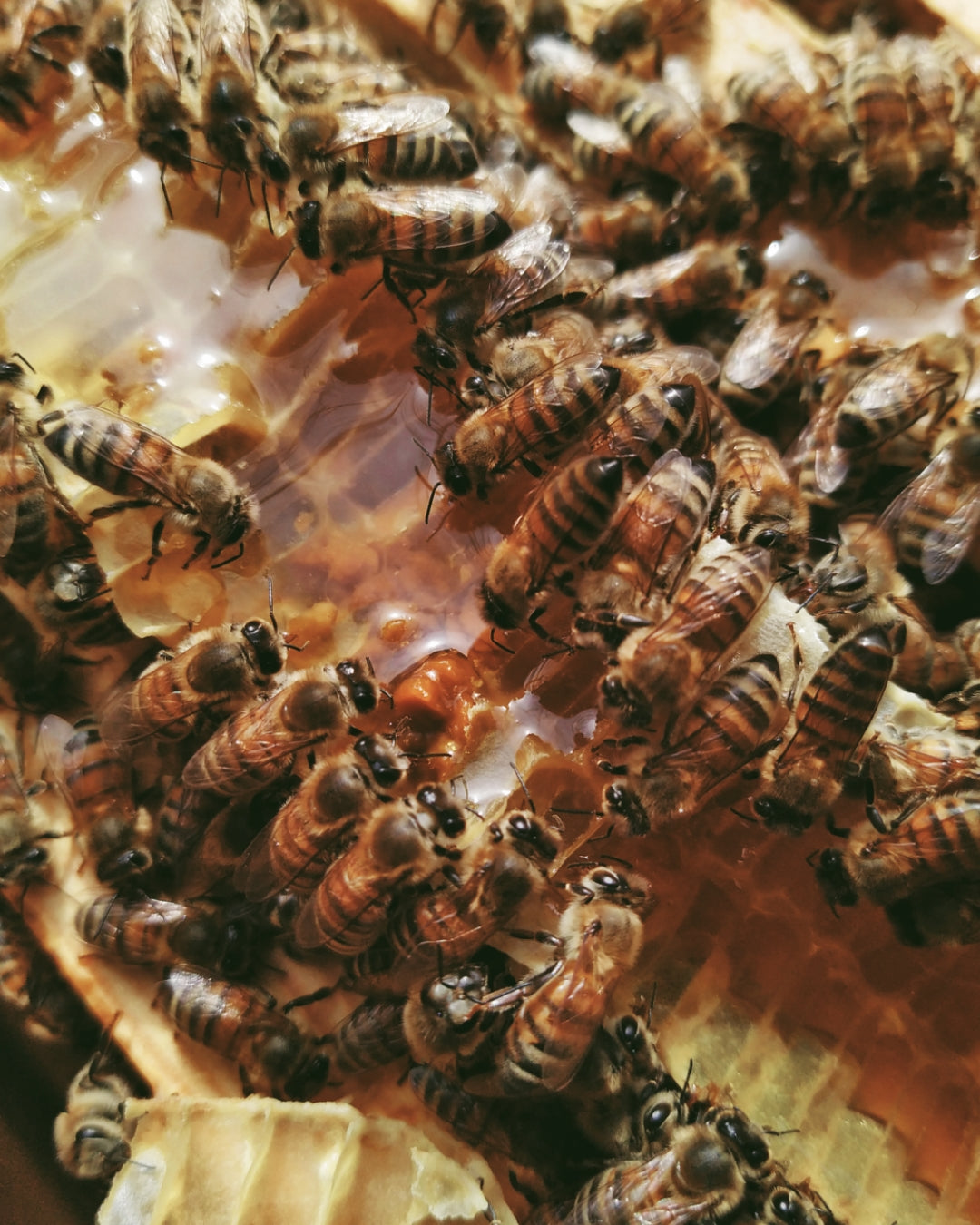
Give Bees A Chance
Slow hands, quiet tools, and a deep respect for the hive.

Only ever
gentle
At Litha Bees, we believe that beekeeping is a relationship—not a transaction. Our ethos is built around gentle husbandry techniques that prioritise the wellbeing of the colony above all else. That means working slowly, observing deeply, and intervening only when necessary. We don’t chase yield or force productivity. Instead, we follow the bees’ rhythms, allowing them to build, forage, and communicate in ways that feel natural and unpressured.

Only ever
mindful
Our inspections are quiet and deliberate. We use minimal smoke, soft movements, and breathable suits to reduce stress in the apiary. We avoid synthetic treatments and harsh interventions, choosing instead to support hive health through biodiversity, seasonal awareness, and preventative care. Every decision—from hive placement to harvest timing—is made with the bees’ long-term resilience in mind.

only ever
kind
This approach isn’t just better for the bees—it’s better for the honey. When colonies are calm and thriving, they produce nectar that reflects the richness of their environment. Our honey is a product of patience, not pressure. It carries the signature of the land, the season, and the species—unblended, unhurried, and unmistakably alive.
FAQ's
Do gentle techniques affect honey yield?
Yes - and that’s the point. We harvest only what the bees can spare, leaving plenty for their own winter stores. Our honey quantities may be smaller, but the quality and integrity are unmatched.
Is this approach suitable for beginners?
Absolutely. In fact, gentle beekeeping is ideal for those just starting out. It teaches observation, patience, and respect—skills that build confidence and deepen connection with the hive.
What’s the role of smoke in your practice?
Smoke is a tool - not a crutch. We use it to warn the bees that something is about to change - before we enter the hives. Overuse can mask important signals and stress the colony, so our goal is always minimal intervention. Sometimes we barely need it at all.
Do you mark your queens?
Sometimes, but only with non-toxic paint and gentle handling. Marking can help with tracking and education, but we never do it at the expense of the queen’s safety or dignity.
How do you handle pests like varroa mites?
We monitor closely using non-invasive methods and intervene only when thresholds are exceeded. Treatments are always organic and timed to avoid disrupting brood cycles or contaminating honey. Our long-term strategy focuses on breeding for resilience and supporting hygienic behaviour.
Can gentle beekeeping still be commercially viable?
Yes, though it requires a shift in mindset. We focus on quality, storytelling, and ecological value rather than volume. Customers who understand our ethos are willing to pay for honey that reflects care, integrity, and environmental stewardship.
